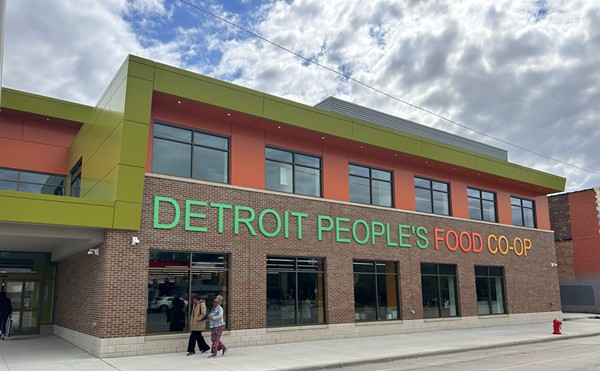For I don’t know how many years now it seems like the so-called “tough on crime” mentality has been about as popular in this country as eating an ice cream cone in the summertime: It just feels like the right thing to do.
That hardcore attitude may finally be turning itself around. Reality has created a new set of circumstances — or maybe just focused more attention on some pre-existing ones that were being overlooked.
Bottom line? You can only build so many prisons, and killing innocent people just because they’re on death row is pretty hard to justify no matter how you look at it.
Apparently during the Reagan years we became fed up with stories of murderous thugs getting away with murder inside a prison system that was often portrayed as far too lenient on the thugs and far too dismissive of the feelings and rights of the victims. So the mood of the country swerved angrily away from what seemed to be the hopelessness — and taxpayer expense — of rehabilitation and toward the considerably more satisfying approach of punishment. Severe punishment.
Rather than wasting time trying to help criminals become better people, the attitude became one of throwing them away like so much refuse. Screw ‘em. The idea of spending money to rehabilitate was tossed to the side in favor of building more and more prisons that would hold more and more criminals. As for the criminals on death row, every effort was made to try and speed up the process between death row and … death.
Whether some of these criminals had been wrongly accused or were being deprived of even marginally competent legal representation was brushed off as secondary to the need for satisfying the ravenous public appetite for revenge and “justice.” If a few innocent folks were killed on the way to killing those who deserved to be killed, then that was the price that had to be paid. Never mind that, according to the most comprehensive death penalty study to date — done by lawyers and criminologists at Columbia University — two out of three appealed death sentences are set aside because of errors by defense lawyers at trial or prosecutorial misconduct.
Hey, nothing’s perfect.
But see, the funny thing about death is that once you’re dead, you’re dead for good. At least that’s what I hear. Nobody’s come back from the other side to tell me anything different yet, so I suspect it’s probably true. That being the case, and since most would agree that life is the most important thing that can be taken away from you, it seems only logical that the legal system should have an obligation to bend over backward to protect the sanctity of life at all costs.
Unfortunately, since the legal system works on a cash basis like just about everything else in our system, that tends to mean that the lives of those without access to the appropriate amount of cash — meaning lots of it — are rarely afforded much value. Unless you’re someone like an O.J. Simpson who can afford a legal dream team, or Mumia Abu Jamal whose celebrity has kept the cameras focused his way, the chances for successful maneuvering in the justice system can be slim.
None of this is new to those accustomed to being brutalized and ignored by the system, but thanks to some well-publicized recent studies the word on what’s really happening seems to finally be reaching the right set of ears.
For example, a bill introduced in March by Sen. Patrick Leahy, D-Vt., would create a National Commission on Capital Representation. Federal funds would be withheld from states found not to be in compliance with standards for capital representation. The bill would also provide incentive and resource grants for capital cases.
In the judicial arena, Supreme Court Justice Sandra Day O’Connor, while speaking to the Minnesota Women Lawyers last week, said that the capital punishment system as it currently exists “may well be allowing some innocent defendants to be executed.” What is encouraging about O’Connor’s comments is that she used to be a strong advocate of the death penalty, but now that the facts are coming to light, Justice O’Connor is at least willing to reconsider her position.
Here are some of the things Justice O’Connor is hearing about: Dozens of inmates on death row lack lawyers for their appeals. One reason is that private law firms are increasingly unwilling to take on such cases because of the excessively burdensome amount of time and money that they inevitably wind up costing the firm.
The shortage of counsel to assist death row inmates in filing petitions challenging their convictions and sentences places them at risk of missing crucial filing deadlines, possibly preventing them from raising equally crucial appeal issues.
The situation has really gotten out of control in Alabama and Georgia, the only states that don’t even guarantee counsel to death row inmates following a direct appeal to the highest state court. These inmates are forced to rely mainly on volunteer lawyers to raise additional claims in subsequent state reviews and federal habeas corpus petitions where federal courts examine proceedings in state courts for error. According to Bryan Stevenson, executive director of the nonprofit Equal Justice Initiative of Alabama, roughly 40 of the state’s estimated 185 death row inmates don’t have counsel.
But even in Louisiana, where the right to counsel after direct appeal is guaranteed, the strain of trying to operate without a sufficient number of competent attorneys is forcing cracks in the system. There, at least 10 of roughly 52 inmates in the appeals process have no legal representation says Denise LeBoeuf, director of the Capital Post-Conviction Project in New Orleans.
Meanwhile, in California, at least 161 of the 600 inmates on the state’s death row have no lawyers to handle their direct appeals, and 72 others have no counsel for federal petitions according to Robert D. Reichman, automatic appeals monitor for the California Supreme Court. Consequently some inmates with death sentences dating from 1996 and 1997 have not even begun appeals.
The lack of competent counsel to handle capital cases had a lot to do with why the American Bar Association called for a moratorium on executions. Another factor has been the relatively recent discovery, thanks to DNA testing, that a significant number of death row inmates were innocent of the crimes with which they had been charged — and for which they were scheduled to be executed.
Some mistakes you can go back and correct. Others ...
Keith A. Owens is a Detroit-area writer and musician. E-mail [email protected]




